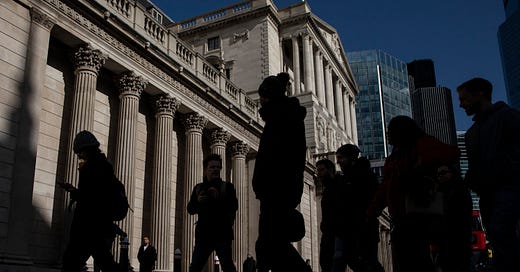Europe’s Banks Are Not Ready for the Coronavirus Recession
Ten years after the international financial crisis, European banks seem dangerously unprepared for the depth of the coronavirus recession.

Europe appears to be on the cusp of a second wave of the COVID-19 pandemic that has already plunged its economy into its worst economic recession in the past 90 years. Yet, European policymakers keep reassuring us that all is well with the European banking system. Their happy talk invites concerns that they will once again be caught flat-footed by the onset of another European financial crisis.
Europe is no stranger to troubled financial sectors. Indeed, in the wake of the 2010-2012 Eurozone debt crisis, several European countries experienced severe banking crises as both households and companies had increasing difficulty meeting their bank loan obligations in the depths of a painful recession. As a result, Cyprus was forced to temporarily shut down its banks, Greece was forced to impose draconian limits on deposit withdrawals, and Spain was forced to seek European financial assistance for its hobbled banking system.
According to the IMF, even assuming that Europe avoids a second wave of the pandemic, its economy will contract by more than 10 percent in 2020 before recovering by around 6 percent in 2021. Worse yet, the IMF is anticipating that the economies of Italy and Spain—the two European countries with the highest public debt levels and the shakiest banking systems—will both experience economic declines of around 12.5 percent in 2020. Those recessions will be more than twice as deep as those experienced 10 years ago.
To be sure, over the past decade the European banks have made a significant effort to prepare for the next economic crisis by strengthening their balance sheets. However, this effort did not go nearly as far as that made by U.S. banks following the bursting of the housing market bubble. Moreover, the European effort has fallen far short of what might be needed to weather a crisis on the epic scale of the coronavirus-induced recession.
An indication of how ill-prepared the European banks might be to handle the current crisis can be gauged by comparing their stress tests on the eve of the crisis to the likely depth of the European recession. The stress tests envisaged that, in a worst-case scenario, the European economy might contract by 4.3 percent. This is a fraction of the declines that the IMF is now forecasting for the whole of the European economy and for both Italy and Spain.
It also is hardly a source for comfort that compared to other European banks, Italian and Spanish banks are among the least capitalized and the most exposed to industries like tourism that are being devastated by the pandemic. These banks also have a relatively high exposure to troubled emerging market economies like Argentina, Brazil, and Turkey.
Even before the pandemic, the Eurozone’s southern member countries desperately needed rapid economic growth to help reduce their public debt mountains. With a wave of bankruptcies and defaults now all too likely to clog up their banks’ balance sheets with non-performing loans, there is every prospect that these banks will not be in a position to provide the credit needed to jumpstart the European economy.
Among the lessons of the 2008 Lehman bankruptcy was how interconnected the global financial system is, and how quickly troubles in the banking system of one country can spill over to the rest of the global financial system. Hopefully, that experience will alert U.S. economic policymakers to the real risk that European banking system trouble could constitute an important headwind to the U.S. economic recovery. This might induce policymakers is Washington to pay greater attention than they now seem to be doing to European economic developments in assessing the external risks to the U.S. economic recovery.









